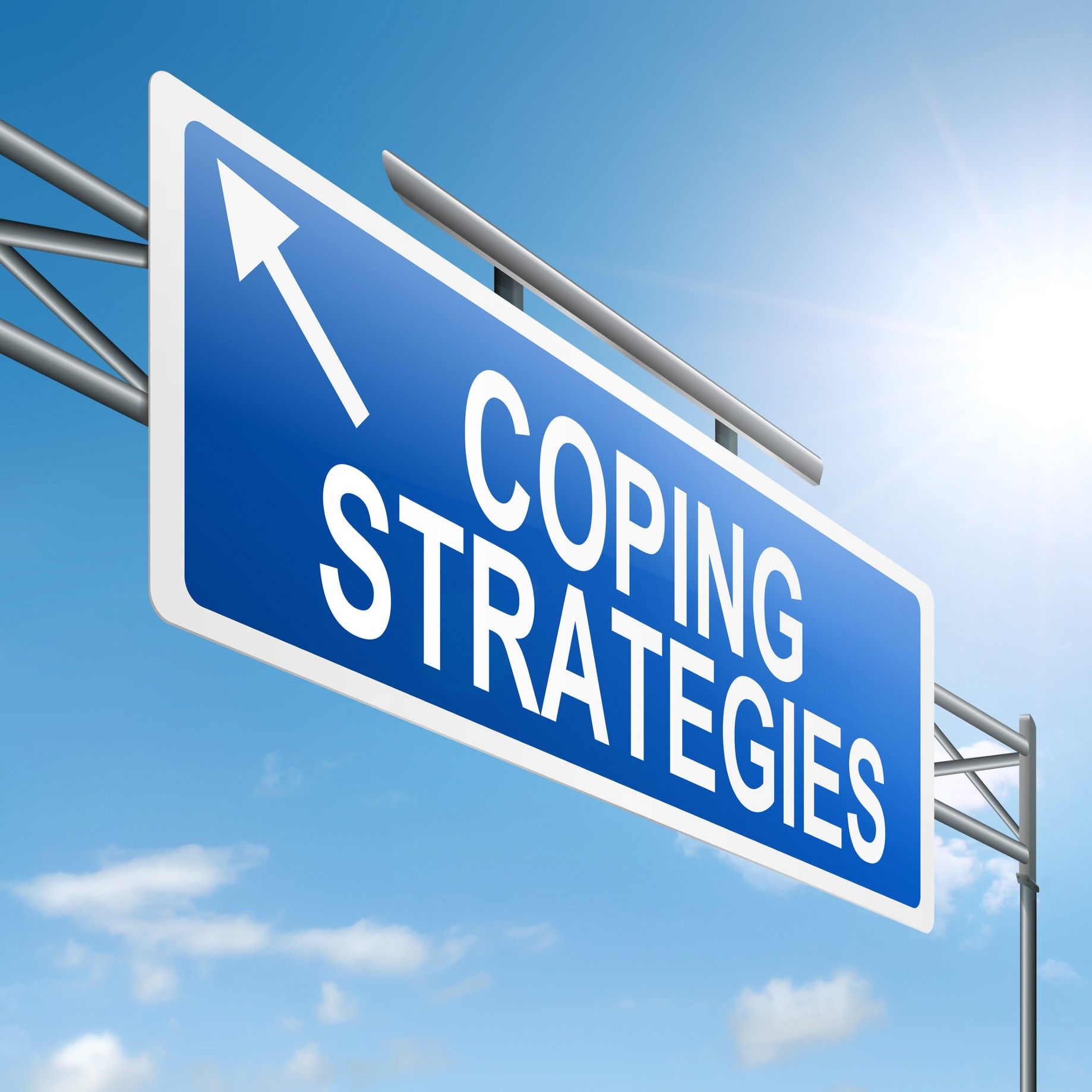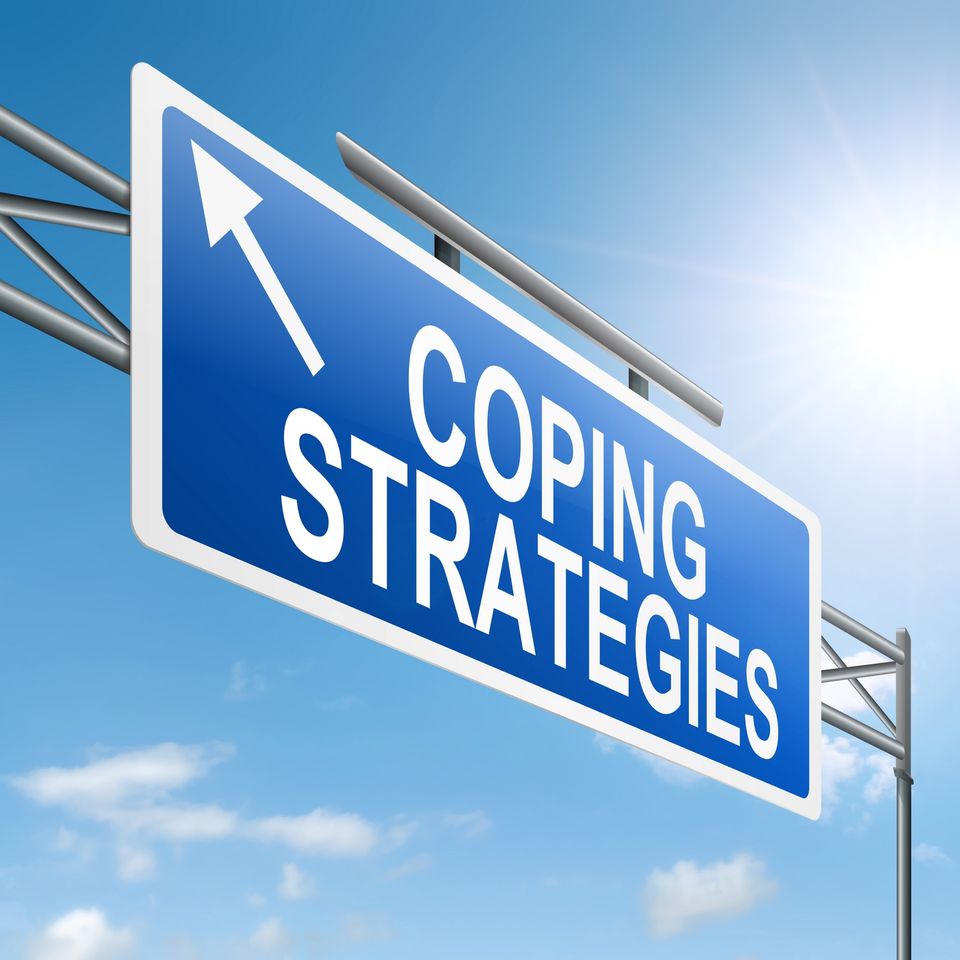What Are Coping Skills?
Coping skills are tools we use to process and cope with difficult emotions and situations. Healthy coping skills are one of the most critical skills everyone should learn to become well-adjusted. Having an arsenal of coping skills will help ensure you can handle any curveball that comes your way.
You may need to utilize coping skills when dealing with difficult emotions like grief, anger, or stress.

Therapy can help teach you these essential skills. Whether you suffer from anxiety, depression, lack of focus, or behavioral issues, coping skills can help improve the way you handle your emotions and teach you healthy tools for channeling your feelings.
Healthy Versus Unhealthy Coping Mechanisms
A coping mechanism is a way we consciously or subconsciously respond to internal or external stressors. Coping mechanisms can be good or bad. In either case, they are designed to provide psychological comfort.
An example of a bad coping mechanism is burying your feelings and pretending they don't exist. On the reverse, a good coping mechanism is sharing your feelings with another person to help you process them.
Below are some examples of healthy versus unhealthy coping mechanisms.
Healthy coping mechanisms
- Writing your feelings in a journal: Doing so daily can be extremely helpful for helping you process your feelings. In addition, it will help you notice thought and mood patterns over time.
- Listening to music: Listening to your favorite tunes can instantly change your mood and bring you to a more relaxed state.
- Taking a walk or getting some exercise: Movement and exercise replace negative feelings with happier ones.
- Engaging in creative activities such as painting or pottery: Activating the creative side of your brain can help open your mind to new ways of problem-solving.
- Talking through your feelings: Ask a close friend for advice or directly confront the source of your frustration. Just make sure you do so when you can speak without your emotions getting in the way.
- Spend time in nature: Nature is said to be grounding. So spending time in nature, especially on a sunny day, can help you feel more connected to yourself.
- Practicing mindfulness techniques: This can include meditation, using breathing techniques, and repeating daily affirmations.
- Facing problems head-on: Come up with a plan of action, such as setting goals and timelines.
Unhealthy coping mechanisms
- Avoidance: either refusing to acknowledge a problem exists or avoiding your own emotions.
- Preparing for the worst: Mentally preparing for worst-case scenarios to prevent disappointment when the negative outcome does occur.
- Isolating yourself: Keeping your feelings to yourself or avoiding others when going through a difficult time.
- Drug and substance abuse: including alcohol and prescription medication.
- Negative self-talk: Being hard on and critical of yourself or blaming yourself for issues that aren't your fault.
- Disrespecting others: Talking down to others, yelling, and being outright cruel.
- Self-harm: This could include intentionally hurting yourself or punishing yourself through starvation.
- Violence: Towards others or inanimate objects
- Shutting down: Especially when confronted on a sensitive subject. You may become unwilling to engage in the conversation and walk away instead.
Why Are Coping Skills So Important?
If you repeatedly resort to unhealthy coping skills, you've likely seen areas of your life suffer as a result. For example, if you are taking your anger out on loved ones, they are likely to pull back and create space between you. If you don't learn to manage your emotions in healthier ways, these people may choose to spend less and less time with you. Or, if you get defensive when given constructive feedback at work, your boss is less likely to see you as a flexible team player, and you may be more likely to lose your job.
If you have the tendency to avoid processing or actively dealing with your feelings, you're more likely to develop mental health issues like depression and anxiety.
As you can see, coping skills are essential because they allow you to process your emotions constructively. Doing so allows you to feel more balanced emotionally.
Adopting healthy coping skills is vital because it builds resilience, flexibility, adaptability, and higher self-esteem. Knowing you have healthy coping tools to fall back on when you feel overwhelmed gives you the confidence to face anything that comes your way.
Who Can Benefit From Learning Healthy Coping Skills?
Anyone and everyone can benefit from learning healthy coping skills. However, learning healthy coping skills can be particularly beneficial if:
- You suffer from anxiety or depression. Healthy coping skills can help you break harmful thoughts and behavioral patterns that only feed these negative emotions.
- You're dealing with grief, such as losing a loved one or bad news regarding your health.
- You have difficulty managing stress and often feel overwhelmed by everything on your to-do list.
- You have a short temper and get angry often and quickly, especially if you direct your anger toward others. Coping skills can teach you ways to manage your anger more effectively.
Cognitive-behavioral therapy is beneficial because it teaches you to identify where, when, and why you adopted negative coping skills. Then, a therapist will guide you toward rewiring your thought processes and behavioral responses so that you can face difficult situations in more productive ways.
A therapist will offer personalized advice based on the areas of your life you need the most help coping with.
How We Can Help
At National Mental Health, we provide mental wellness strategies both through in-person and virtual psychotherapy. If you are having difficulty coping with grief, anger, depression, stress, and anxiety, our compassionate providers are ready to help. Through our telehealth psychiatry services, you can see a psychiatrist online at a time that works best for you without commuting to an office.
In addition to teaching you healthy coping skills that you can implement into your daily life, your online psychiatrist may prescribe medication if symptoms of anxiety and depression are too challenging to manage through psychotherapy alone.
Whatever you may be going through, we want to help you cope! Get in touch to schedule a consultation today!

